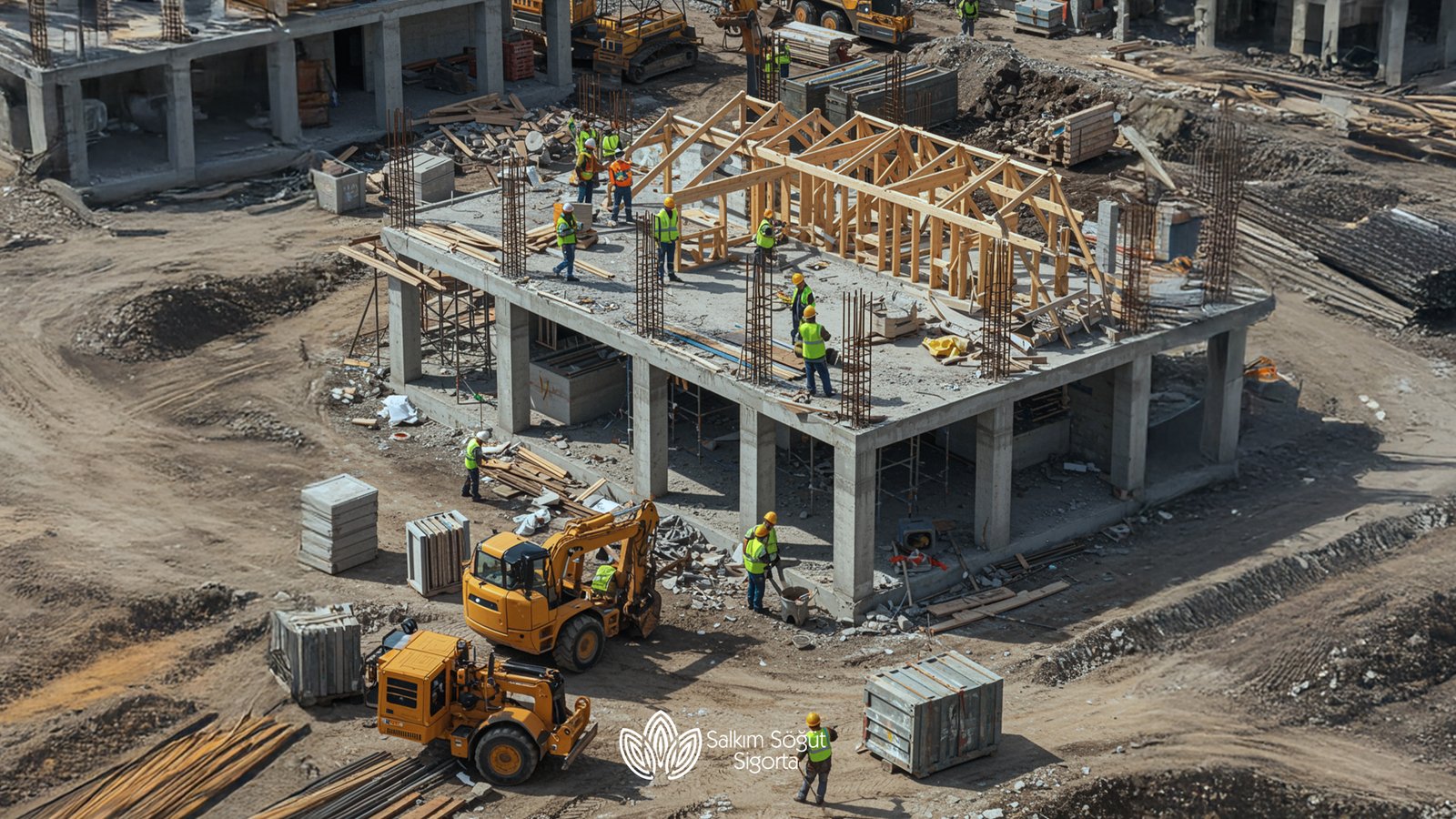
Building Completion Insurance
Constructing a building can be one of the biggest steps in our lives. For some it means creating the dream home, for others establishing a place of business; in either case, it involves a significant investment both financially and emotionally. When beginning the construction process, many of us have a single wish in mind: “May everything proceed smoothly as planned and may my dream come true in the end.” Yet the unique risks of construction, delays, unexpected costs or contractor‑related issues often turn the process into a stressful marathon.
Construction Completion Insurance isn’t just a safety mechanism; it works like a protective shield that ensures your peace of mind during the construction process. It safeguards one of your most valuable investments—your building—by protecting it from potential setbacks and ensuring it is completed as you planned.
One of the greatest advantages of Construction Completion Insurance is that it protects you from financial losses in unpredictable scenarios. For example, the contractor going bankrupt, technical malfunctions during construction, or the project being left unfinished for various reasons may lead to serious losses. In such cases, the insurance provides the financial support needed to continue construction and relieves you from a major burden.
Also, this insurance does more than provide financial security; it offers great emotional relief as well. Completing a building is a time‑ and energy‑intensive process. Living in constant fear of “what if something goes wrong?” can make it difficult to enjoy the process. With Construction Completion Insurance, you can reduce such anxieties and focus more effectively on other important details.
What is Construction Completion Insurance?
As the name suggests, Construction Completion Insurance is a specialized protection mechanism that safeguards you against mishaps that may occur during the construction process. Building is a major investment and often one of the most important projects in our lives. But the process doesn’t always go as planned. The contractor’s bankruptcy, unexpected delays or technical failures may put the completion of your building at risk. That’s precisely where Construction Completion Insurance steps in and provides the necessary support to finish any incomplete work.

Especially in the case of build‑for‑share projects or for individual investors working with sole contractors, this insurance is vital. Because when construction stops halfway, not only financial loss but also a large time loss occurs. Delivery dates are extended, and the effort and resources you invested are at risk of going to waste. Construction Completion Insurance eliminates these uncertainties and secures your investment so your project can be completed as envisioned.
Another important advantage is that it alleviates the investor’s psychological burden. Construction is already a stressful and intense period; living with constant “What if a problem arises?” anxiety complicates decision‑making and reduces motivation. With this insurance, you can manage the process in a healthier and more controlled way without panicking when unexpected setbacks occur.
What Does Construction Completion Insurance Cover?
Construction Completion Insurance covers various situations to secure your investment and construction process. So, which risks exactly are covered by this insurance? Let’s look in simple terms:
Contractor Default: The contractor, who plays the lead role in the construction, sometimes may not act as planned or may go bankrupt. In such a case, the insurance takes effect and provides the necessary support to complete the remaining work. You no longer need to worry “What if the contractor quits the job?”.
Construction Stoppage or Delay: Natural disasters, financial issues or legal hurdles may stop the construction. Construction Completion Insurance ensures the continuation of the process in such unexpected situations. Even if the project is not completed within the expected time, your insurance can help get things back on track.
Material & Labor Issues: Some policies also cover deficiencies caused by substandard materials or workmanship. Thus, you do not face additional costs due to poor quality labor or defective materials.
Sub‑contractor Problems: In large‑scale projects, subcontractor companies may sometimes fail to finish their work on time or may leave tasks incomplete. Insurance offers added protection in such situations and helps the process continue without interruption.

Why Should You Get Construction Completion Insurance?
Construction Completion Insurance especially provides both financial and emotional assurance to investors in long‑term, high‑cost construction projects. Even if unexpected setbacks occur, you won’t need to make additional expenditures to finish the work, which gives you financial comfort. Moreover, the insurance allows you to focus on your project without the constant worry of “What if something goes wrong?”.
Banks and financial institutions view insured projects as safer, making it easier for your investment to receive support. Finally, thanks to the insurance your project gets the guarantee to be completed within the defined time and standard; you can reach your dream building with confidence.
Who Is It Suitable For?
Construction Completion Insurance serves as a safety net for anyone exposed to risk during the construction process. From individual investors building their own home or business, to owners of build‑for‑share projects who want their project completed without deficiencies; to large‑scale developers and construction companies—this insurance is of great importance. It provides financial and legal security against setbacks and uncertainties in the project, making safe completion of your investment possible.

Construction Completion Insurance Prices
Prices for Construction Completion Insurance can vary depending on the size of the project, the duration of construction and the scope of the insurance coverage. Since every building and project is different, it would not be correct to give a standard price. Therefore, the most accurate and reliable information about the insurance cost is obtained by directly contacting your insurance agency.


